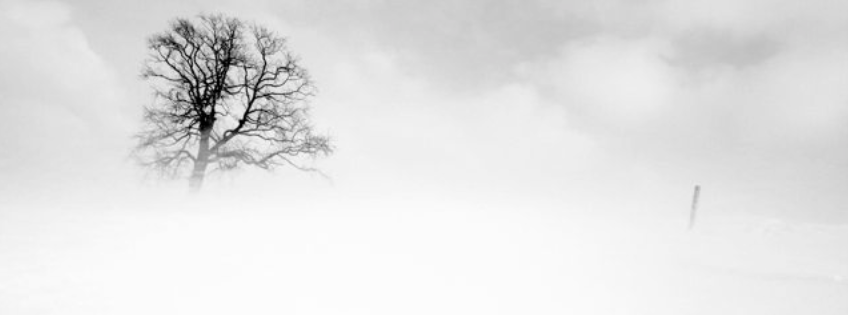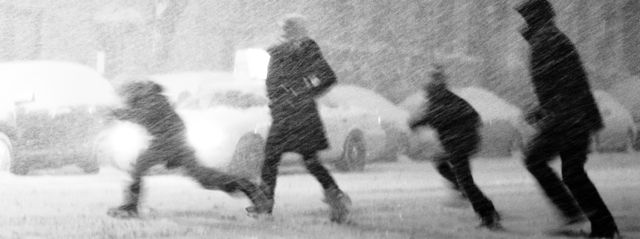
AT some point in my childhood I became aware of the situation. From late October through New Year’s Eve it was a steady buildup of anticipation, not so much for me and my siblings, but for my mother. It seemed her whole year’s happiness was hinged on Christmas. Inevitably the crash would come – usually late afternoon New Year’s Eve – and my mother would sink into a deep and frozen sadness lasting weeks, sometimes months. I began to anticipate this arc and in turn I began to dread a season I desperately wanted to enjoy.
Each year, every autumn, and with each sunset falling lower on the southern horizon, I’m still drawn to the memory of that emotion; a riptide of sadness that does not belong to me. To combat this feeling I seek a buoy and find it in an unlikely source: my father, a man who had little thought, or compassion, for those around him. It simply wasn’t in his capacity to think of others, yet each year the act of an otherwise criminally negligent man pulls me from this undertow of holiday sadness.
I wonder where he learned it . . . I wonder if my own memory is a figment of my creation.
Writing a letter to Santa Claus was an event, carefully thought, politely worded – never writing “I want”, never naming specific toys, or brand names. I understand the reason now: parents who can’t afford Christmas don’t encourage expectations. The letters were sealed and addressed, and three or four days before Christmas Eve my father collected them. I worried about postage. How would the letters get all the way to the North Pole without stamps?
“They don’t need stamps, snow delivers them,” was all he said. My father didn’t explain why or how the snow delivered letters, he didn’t need to. His brief explanation fit my limited understanding of the world.
Late at night, well past any standard bedtime, my siblings and I watched from the top floor hallway window as the blurry figure of our father crossed the yard holding a fistful of letters. He stood and waited until there was a gust of wind. He would bend forward slightly, then toss the letters high above him. From our vantage point it appeared the letters were transformed into a swirl of snow and swept away. At that moment I occasionally wished for an impossible request: a real fireplace, or a long plaid cloak like the girls at school wore.

Each December since my father absented himself from my life, I wonder why he carried out the snow delivery ritual; why this one fatherly act? I wonder where he learned it, if he had his own childhood memory of it. I wonder if my own memory is a figment of my creation. Even if it is, I’ve attributed it to my father, making it just as real as if he did. I wonder at the symmetry of one parent’s weakness compensating for the others. I set those thoughts aside as best I can. Instead, three or four days before Christmas Eve, I set out on a nighttime walk in my neighborhood, in my hometown, taking in all of the light and color shining from the widows and the decorated trees. Finding the highest spot in the park, I watch the city sparkle under dark skies. It may well be the shortest day of the year but it is just as bright as high-summer. I grab a handful of snow. Holding it loosely, I toss it high into the wind-chilled air, watching as it spins and floats like a multitude of faceted pieces of paper. I no longer wish for impossible things. A unique, albeit possibly made-up, memory of a winter night tradition reminds me I don’t have to bear another’s sadness. And, it grants my dearest wish: to be joyful in this season.
I will share this joy and winter night tradition with my nearest and dearest friends, helping them send their children’s letters to the North Pole. You’re welcome to include it in your traditions. ≈ç

CAROLINE LOLA HOPPER is a World War I historian and library administrator at the University of Pittsburgh. Her partner, companion, inspiration, best friend, and pole star is her hometown Pittsburgh, Pennsylvania; she believes Pittsburgh feels similarly.

Add new comment